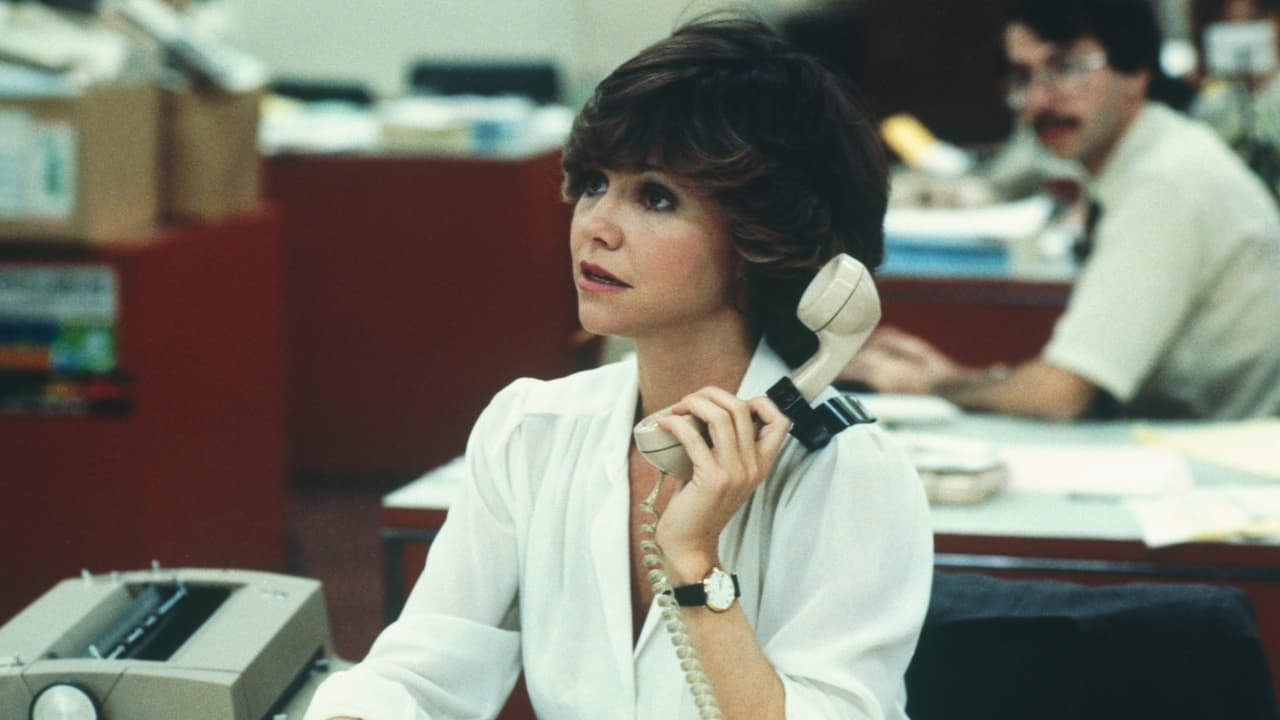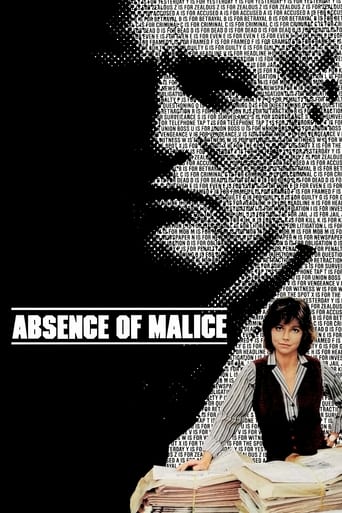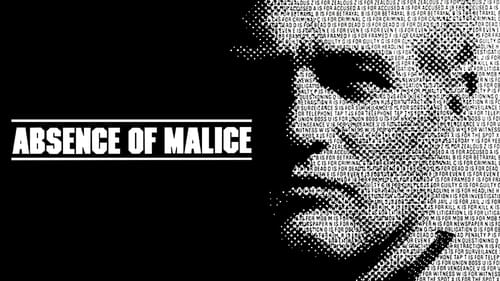



The performances transcend the film's tropes, grounding it in characters that feel more complete than this subgenre often produces.
View MoreIt's funny, it's tense, it features two great performances from two actors and the director expertly creates a web of odd tension where you actually don't know what is happening for the majority of the run time.
View MoreThere are moments that feel comical, some horrific, and some downright inspiring but the tonal shifts hardly matter as the end results come to a film that's perfect for this time.
View MoreEasily the biggest piece of Right wing non sense propaganda I ever saw.
View MorePaul Newman's hit piece on the press is pretty see-through in its intent. All because Newman had issues about people printing stories about him. So, what follows is a one-sided story about an incompetent reporter (Sally Field) and the press apparatus recklessly tearing into an innocent man (Paul Newman).Since the movie is as one-sided as it is, you would hope for some style from the script, but it's instead just plodding and without any style whatsoever. Field, who's shown herself as highly competent in films like "Norma Rae" inexplicably plays a complete ditz here. Newman just plays his stock Newman character.The way the story unfolds is clunky and unfocused. Throwing in a lot of mafia dealings, lots of unnecessary melodrama, and a kinda-sorta romance between the mismatched Newman and Field makes the movie thoroughly unwieldy.I've never been a fan of Dave Grusin's film scores, so his over-the-top music here again proves to be too much. Owen Roizman is a very good cinematographer, but his work can't help the movie with its issues.Sydney Pollack was always a director who was certainly the lesser of his contemporaries. Easily proving this is how much better a job Sidney Lumet did with Newman the next year with "The Verdict." And, it didn't hurt that Lumet had the great David Mamet writing the script.* (1 Out of 10 Stars)
View MoreMichael Gallagher (Paul Newman) is a upstanding liquor wholesaler in Miami. His late father was a local gangster and so is his uncle Malderone (Luther Adler). The Strike Force headed by Elliott Rosen (Bob Balaban) leaks a story to reporter Megan Carter (Sally Field) that Michael is under investigation for Longshoremen union boss Joseph Diaz's disappearance. The paper's lawyer declares that the truth is secondary as long as there is an Absence of Malice. Soon Michael is struggling with the union refusing to work for him. He has an alibi but he refuses to use it. He had accompanied Teresa Peronne (Melinda Dillon) to get an abortion in Atlanta. Megan writes about the story and Teresa commits suicide. Megan breaks down and tells Michael the source of her original story.It's an interesting take on the damage of reporting of leaks. It's great to see the news media not put on a pedestal. There is a lot of truth in this. It is normal operations for everybody today. It is the counter argument to 'All the President's Men'. It does take a few unlikely turns but it doesn't go too far. I don't really buy the entire reversal of fortunes. Director Sydney Pollack does a capable job. I do wish he brings a grittier sensibility. Also the oversexualized Sally Field feels very awkward. And in the end, the movie leaves the murder unanswered.
View MoreThis is a great theatrical interpretation of a classic media ethics issue for a reporter and her newspaper. The hard-hitting reporter, Megan Carter (played by Sally Field), finds a great story with many juicy facts. Wanting to get the story first, Carter, does what she must to get it. She ends up reading planted files, getting involved with the subject of her story, and ruining many relationships and lives. It is not until everything has turned upside down before she realizes that she was only a pawn that helped no one and ruined literally everything for everyone, including herself. Despite her obnoxious demeanor as a relentless reporter, the other characters, like Michael Gallagher (Paul Newman), care for her. Blinded by her motive for the story, she fails to see her life, relationships, and integrity have all taken a backseat. Carter doesn't receive the wake-up call of what she has done until everything unfolds and she realizes she was only a pawn in the greater scheme of things. She learned the "truth" she reported was never accurate in the first place. Carter felt justified as a reporter to write her story and in turn she failed to see her own lack of character and integrity in how she acquired the facts, the evidence was dirty. Even though she may not have been malicious, she was absence malice along with other virtues that makes a real reporter great. In the end, Carter acknowledged that her job as a reporter is important, she just didn't do it well and did it terribly. Absence of Malice is a great portrayal of the challenges a reporter must face and that a reporter's job is bigger than simply reporting the facts. The issues and the lines get blurry but it is up to the reporter to make the decision on how to handle it. Although protected by the law, the law couldn't tell her what was right, what was wrong, or what the consequences would be. Generally an editor is a helpful guide. But in Carter's case, her editor was just as interested in the story as she was and fueled her drive. Ultimately Carter, had to pay the price to play the game. And she paid big time as did every character involved with her. This is not a movie with the ultimate happy ending. It did not leave me feeling good about what happened in the end, but rather left me feeling like I personally endured a "hard-lesson learned."
View MoreA reversal of "All The President's Men", Sydney Pollack's "Absence of Malice" sees an overzealous prosecutor leaking information to a young reporter (Sally Field). The leak involves Michael Gallagher (Paul Newman), a liquor wholesaler whose father had a criminal past and mob affiliations. When Field publishes her story, which implicates Gallagher in the murder of a unionist, Gallagher challenges her. He believes he was unfairly slandered.Unlike "All the President's Man", which saw valiant media-men carving through lies and half truths to get at facts (thereby rightfully exposing and incriminating), "Absence of Malice" thus does the opposite. Here, journalists and prosecutors trade in lies, half-truths and skirt around laws. Meanwhile, the film's victims are innocent businessmen who are wrongly accused of bullying unions. The film's title refers to a by-law which essentially allows journalists to "do wrong" if they can sufficiently prove that they harboured no ill intentions.Like most of Pollack's films, "Malice" is overlong, simply shot and drags.7/10 – Worth one viewing.
View More